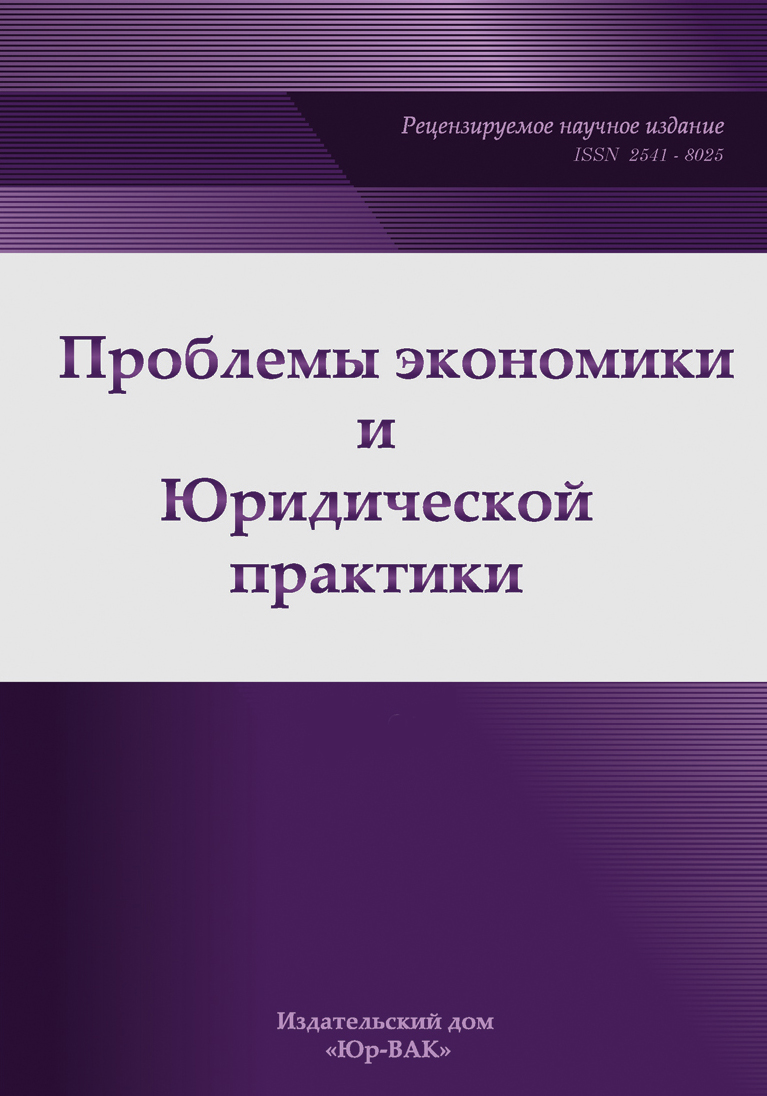Perspectives on Accounting for the Degree of Self-service of Restriction to Self-service in the Development and Application of Staffing Standards for Stationary Social Service Organizations
- Autores: Smirnov V.M.1, Shestakov M.A.1
-
Afiliações:
- «All-Russian Scientific Research Institute of Labor» of the Ministry of Labor and Social Protection of the Russian Federation
- Edição: Volume 18, Nº 6 (2022)
- Páginas: 213-221
- Seção: Articles
- URL: https://journals.eco-vector.com/2541-8025/article/view/545927
- ID: 545927
Citar
Texto integral
Resumo
The article deals with methodological and practical issues related to taking into account the degree of restriction to self-service in the development and application of staffing standards for stationary social service organizations. In particular, it is shown that the lack of clear formalized criteria for classifying recipients of social services living in stationary social service organizations as levels of need for outside assistance and the difficulty in quantifying the number of recipients belonging to different levels of need for outside help can lead to statistical distortions information on the basis of which management decisions are made, the desire of social service organizations to unreasonably increase the number in more labor-intensive levels of need for outside assistance. The authors propose two directions for overcoming the difficulties associated with a quantitative assessment of the number of recipients of social services by levels of need, and analyze their advantages and disadvantages. The article is of interest to specialists involved in the organization of labor rationing systems, personnel planning in the field of stationary social services for the population, as well as for researchers and analysts involved in the development of the system of social services for the population.
Palavras-chave
Sobre autores
Vladimir Smirnov
«All-Russian Scientific Research Institute of Labor» of the Ministry of Labor and Social Protection of the Russian Federation
Email: vsmirnov@vcot.info
Dr. Sci. (Econ.), Associate Professor, Deputy Director General Moscow, Russian Federation
Maxim Shestakov
«All-Russian Scientific Research Institute of Labor» of the Ministry of Labor and Social Protection of the Russian Federation
Email: shestakov_ma@vcot.info
Deputy Director of the Center for Social Policy Research Moscow, Russian Federation
Bibliografia
- Order of the Ministry of Labor and Social Protection of the Russian Federation of November 24, 2014 N 940n «On Approval of the Rules for Organizing the Activities of Social Service Organizations and Their Structural Subdivisions».
- Chalenko I.A., Shestakov M.A. Rationing of budget expenditures on social services for the population, taking into account the degree of need of recipients of social services in outside assistance // Economics of Labor. -2020. -Volume 7. -No. 12. -P. 1181-1200. doi: 10.18334/et.7.12.111298.
- Basic approaches to the methodology for determining the need for care within the framework of the long-term care system: Educational and methodological complex. -M.: Pero Publishing House, 2022. -119 p. [Electronic edition].
- Order of the Ministry of Labor of Russia dated December 29, 2021 N 929 «On the implementation in certain constituent entities of the Russian Federation in 2022 of the Standard model of a long-term care system for elderly citizens and disabled people in need of care.»
- European Commission. (2012). Long-term Care: Need, Use and Expenditure in the EU-27. Economic Papers No. 469 (November 2012). Brussels: Directorate-General for Economic and Financial Affairs Publications. Brussels: European Commission.
- S. Katz «Assessing Self-maintenance: Activities of Daily Living, Mobility, and Instrumental Activities», Journal of the American Geriatrics Society, vol. 31, pp. 721-727, 1979.
- М. Р. Lawton and Е. М. Brody «Assessment of Older People: Self-Maintaining and Instrumental Activities of Daily Living», The Gerontologist, vol. 9, no. 3, pp. 179-186, 1969. [Online]. Available: http://gerontologist.oxfordjournals.org/cgi/doi/10. 1093/geront/9.3_Part_1.179/.
- W. Spector and J. Fleishman «Combining activities of daily living with instrumental activities of daily living to measure functional disability», Journal of Gerontology, vol. 53, no. I, pp. 46-56, 1998. [Online]. Available: http://psychsocgerontology.oxfordjournals. org/content/5 3 В/1 /S46. short/.
- Forms of statistical observation 3 social security and 6 social security for 2021.
- Order of the Ministry of Labor and Social Development of the Russian Federation of August 27, 2019 No. 585n «On the classifications and criteria used in the implementation of medical and social examination of citizens by federal state institutions of medical and social examination».
- Korobov M.V., Katyukhin V.N., Shvartsman Z.D., Pomnikov V.G. International classification of functioning, disability and health in the practice of medical and social expertise in internal diseases. Therapeutic archive. 2013;85(4):43-46.
- Criteria for assessing disability in ITU institutions. [Electronic resource]. Access mode: https://www.invalidnost.com/publ/sotrudnikam_sluzhby_mseh/kriterii_ocenki_ogranichenij_zhiznedjatelnosti_v_uchrezhdenijakh_mseh/3-1-0-399 (Date of access: 01.12.2022).
- International classification of functioning, disability and health (ICF). WHO. 2001.
- Obukhovets T.P. Nursing and nursing care / T.P. Obukhovets. -M.: KNORUS, 2016.
- Optimal daily routine for pensioners [Electronic resource]. Access mode: https://noalone.ru/infocentr/dosug/optimalnyy-rezhim-dnya-dlya-pensionerov/ (Date of access: 12/01/2022).
- Psychological support for older people during the period of adaptation to life in a gerontological institution: guidelines / ed. N. V. Klyueva; Yaroslavl state un-t im. P. G. Demidov. -Yaroslavl: YarSU, 2012. -80 p.
Arquivos suplementares









